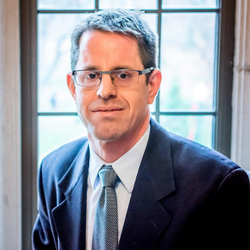
Please join the Comparative Politics Workshop as they host Timothy Hellwig, Professor of Political Science at Indiana University.
Voters commonly respond to economic downturns by punishing incumbents. No study, however, considers variation within the opposition. Does the economy matter for the choice between challengers? When faced with the task of assessing policymaker performance in tough times, which challenger do voters choose: an established party with experience as head of government or an inexperienced outside option? While conventional accounts attribute the successes of outsider parties to their position-taking strategies, we propose an explanation anchored in competence. Even in tough economic times, selecting unproven challengers is a risky proposition. Voters are more likely to bear these risks, however, when the duration of economic underperformance is longand the tenure of the sitting government is short. A series of micro and macro-level analyses provides evidence in support of our argument. Study findings show that parties, even within the opposition, can be distinguished on competence grounds and not position-taking strategies alone.
Timothy Hellwig is Professor of Political Science and Academic Director of the Europe Gateway at Indiana University. He holds a B.A. from St. Cloud State University, an M.A. from American University, and a Ph.D. from the University of Minnesota. He has been a researcher at the International Foundation for Election Systems, on the faculty at the University of Houston, and a visiting researcher at the Australian National University, Gothenburg University, and the University of Essex. He previously served as Director of the Institute for European Studies in Indiana University's School of Global and International Studies. His interests are in comparative political economy, political behavior, European politics, public policy, and research methods. He is a member of the Executive Approval Project, a cross-national effort at compiling and analyzing aggregate public opinion data. He is coauthor of Democracy Under Siege? Parties, Voters, and Elections after the Great Recession (Oxford University Press), author of Globalization and Mass Politics: Retaining the Room to Maneuver (Cambridge University Press), as well articles in several journals and book chapters, including the American Journal of Political Science, the British Journal of Political Science, and the Journal of Politics.
Audience
- Faculty/Staff
- Graduate Students
Interest
- Academic (general)